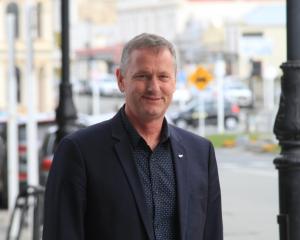A major part of the Lower Waitaki River Management Society's challenge against a new power scheme on the Waitaki River came under close scrutiny in the Environment Court yesterday and on Wednesday.
The society has appealed the granting of resource consents for Meridian Energy's north bank tunnel scheme between the Waitaki dam and Stonewall.
Consultant economist Neville Bennett, appearing as an expert witness for the first time in the Environment Court, gave evidence on the values of the Waitaki River, including water Meridian wanted to use, whether New Zealand needed the scheme and its viability.
Meridian's counsel Jo Appleyard challenged Dr Bennett's evidence, showing up some errors in fact and in calculations he had carried out, along with methodologies he used to reach some conclusions.
That included figures he had used to calculate the value of the water for other uses, Dr Bennett mixing up days with hours for the time spent hunting on the river.
He was not familiar with some Meridian evidence or the Waitaki catchment water allocation regional plan allocating water for other uses, and believed the four resource consents for the scheme had been granted by Environment Canterbury in 2005, when the interim decision was in fact made in December last year and a final decision early this year.
He was not familiar with conditions attached to the consents, at one stage acknowledging "that would be good" when Ms Appleyard referred to community funds and plans to mitigate effects, including $1 million for a recreation development plan.
Dr Bennett said he had "come rather late on the scene" and had two weeks to prepare his report.
"My method is to ignore what others say and start anew," he said, adding he preferred to be "totally independent".
Dr Bennett said in his evidence that if the scheme was never built "the lights will not go out".
When the South Island needed new generation, it could be provided by wind generation and additional storage in existing hydro schemes.
More hydro generation in the Waitaki Valley would increase market sensitivity in dry years and increase Meridian's market power to exploit the opportunity.
The intrinsic complexity of the river meant its response to the effects of the scheme could not be reliably predicted.
Appearing for the society, Canterbury University associate professor in geological sciences Tim Davies endorsed in principle the use of adaptive management plans.
However, he disagreed the five-yearly intervals to monitor and adapt the plans proposed by Meridian would be sufficient, suggesting such frequency would not allow for mitigation which was rapid enough to prevent potentially serious environmental issues from developing.
Dr Davies recommended yearly monitoring be used initially, and more frequent monitoring employed if problems occurred.
Alteration of the flow regime should be the primary means of achieving mitigation, not mechanical means, he said.
Day 8
The Meridian Energy north bank tunnel concept power scheme, costing up to $993 million, is to take up to 260cumecs of water from Lake Waitaki into a 34km-long tunnel between the Waitaki dam and Stonewall, with one powerhouse generating between 1100GWh and 1400GWh a year.
Environment Canterbury (Ecan) granted four water-only resource consents in December for the power scheme.
Appeals were filed with the Environment Court by the Waitaki Protection Trust, Waitaki River Management Society, Ngai Tahu, Ngati-Mamoe Fishers People and Black Point farmer Garth Dovey.
Environment Court hearing June 22 to July 3, Oamaru, July 6 until completed, Christchurch.
Hearing before Judge Jon Jackson, commissioners Dr Alex Sutherland and Helen Beaumont and deputy commissioner Ken Fletcher.
Evidence yesterday: Economics of the scheme, effects on river birds, river geomorphology and vegetation, the national power system, planning, economic and technical efficiency and Government policies.













